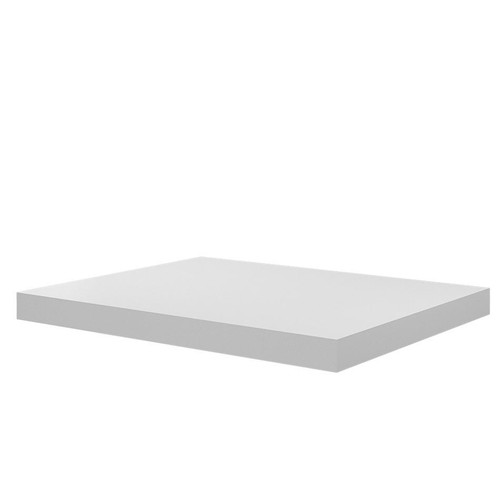You want your circular saw to protrude about 2mm out the bottom of the board and you'll be fine. So your depth of cut would be 26/27mm
That’s a great tip….thanks
You want your circular saw to protrude about 2mm out the bottom of the board and you'll be fine. So your depth of cut would be 26/27mm

A fellow DIYer. Vaguely competent.
Do you have the window board already?
If not ...

Square MDF Window Board
You are looking at our Square Window Board (also know as square window cills) - used by both professionals in the trade and the general public. Whether you use the 18mm thick or the 25mm thick boards - they're all really high quality and are suitable for almost any indoor application.mdfskirtingworld.co.uk
Thanks for the tip….it wasn’t the best of cuts, as you can seeWell played. For what it is worth a high quality plunge saw on a track (eg Festool, Mafele, etc) will give a quality of cut that only needs very slight sanding prior to painting. The tracks minimise the chipping on the surface face, but you can set the depth of cut to about 0.5mm (or less) on the first pass which should leave virtually no chipping.
The quality of cut is, in most cases, vastly superior to a saw with a fence.
Yeah, you’re right. I couldn’t think of a way of doing a continuous cut the way I was doing it on my workbench, and I was doing it freehand. The saw motor housing would have hit the clamps if I’d used a straight edge.I think I can see a couple of places where you may of stopped moving to re position yourself. I find it best to try and do the cut in one continuous smooth run

But then you may get a breakout rough edge on your top but yes that is an ideaWhen attempting such tasks in the past, I've found myself screwing the straight into the workpiece for the same reason. There is an underside to your window board, so a few screw holes wouldn't make any difference.
If aiming to do it in one move - plan ahead making sure you can reach and can walk along and that the lead will not get snagged, do a dry run with no power, get someone to perhaps support the first bit you cut .
After cutting loads of various boards over many years I have invested in a table saw and wish I had done so years ago, its a total game changer for theses jobs.
If aiming to do it in one move - plan ahead making sure you can reach and can walk along and that the lead will not get snagged, do a dry run with no power, get someone to perhaps support the first bit you cut .
After cutting loads of various boards over many years I have invested in a table saw and wish I had done so years ago, its a total game changer for theses jobs.
None of the clamps I linked are long enough for that. Find a straight piece of wood and screw or clamp it.Yeah, the way I had it set up I was stretching right over my work bench with the circular saw, doing it freehand on a board 1.8m long !!. Not ideal, and I couldn’t do it without changing position. No doubt the pro’s will be cringing, lol
A table saw would be ideal, but not worth the investment for the times I would use it
The next board is 2.3m long…..can’t wait for that one
Yes you will struggle with a door. and for long stuff you need a feed in and a feed out table. Or at least a feed out table.I don't own a table saw, but I do have a Festool track saw. I can see the value of a small table saw, but, with respect, if cutting (up to 2.4m) the track saw will be easier and more accurate (assuming that you can elevate it high enough to screw up the track clamps).
The downside to the track saw is that, ideally the stock will be wider that the track, but there are ways to get around that. A small table saw is difficult to work with wide stock.
Horses for courses, but if I only had access to a decent portable table saw or a decent track saw, I would go for the latter, that said, your requirements might well be different to mine. I can use mine to trim, for example, doors. I would not want to try run a door over a portable table saw.
